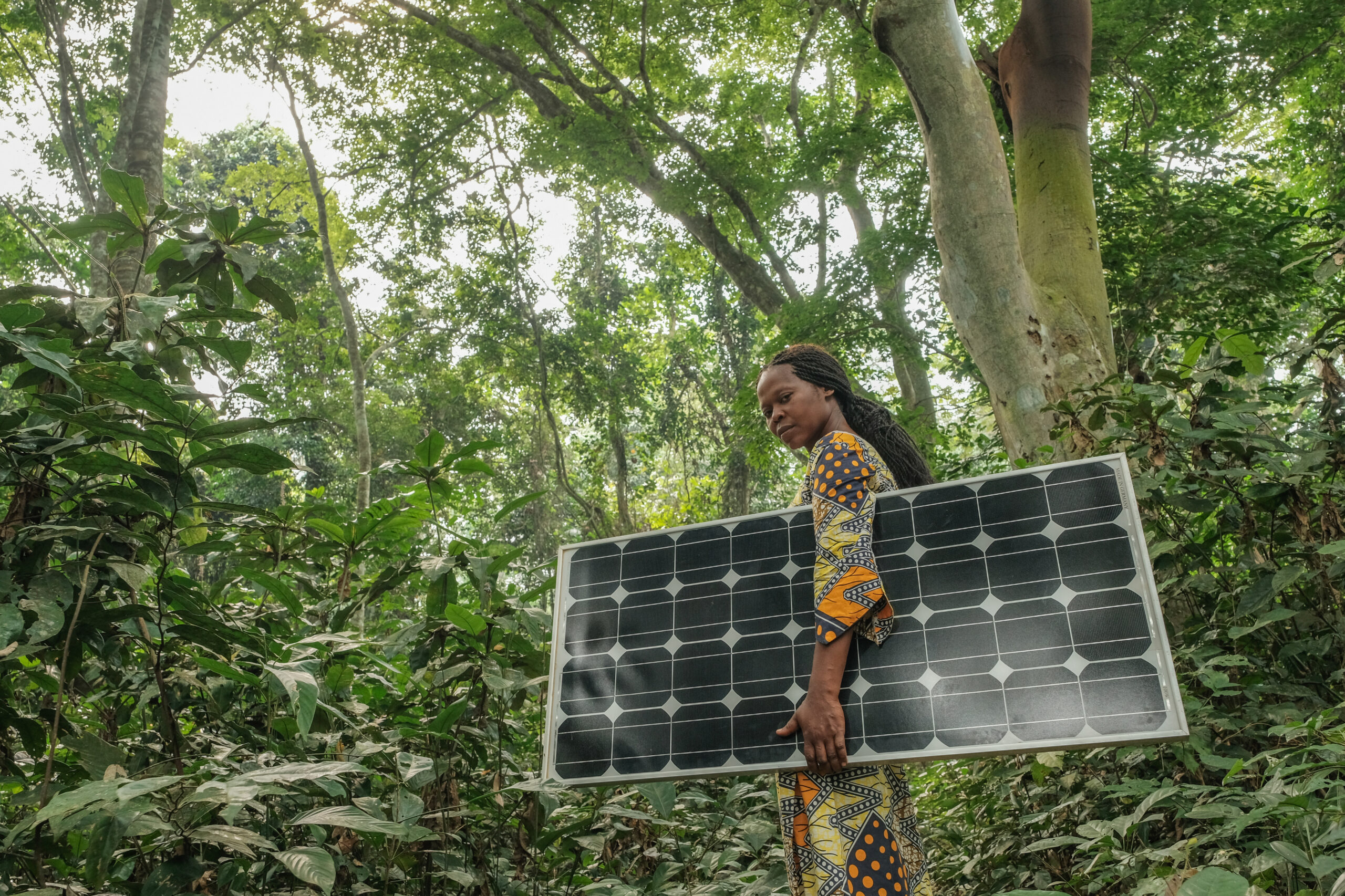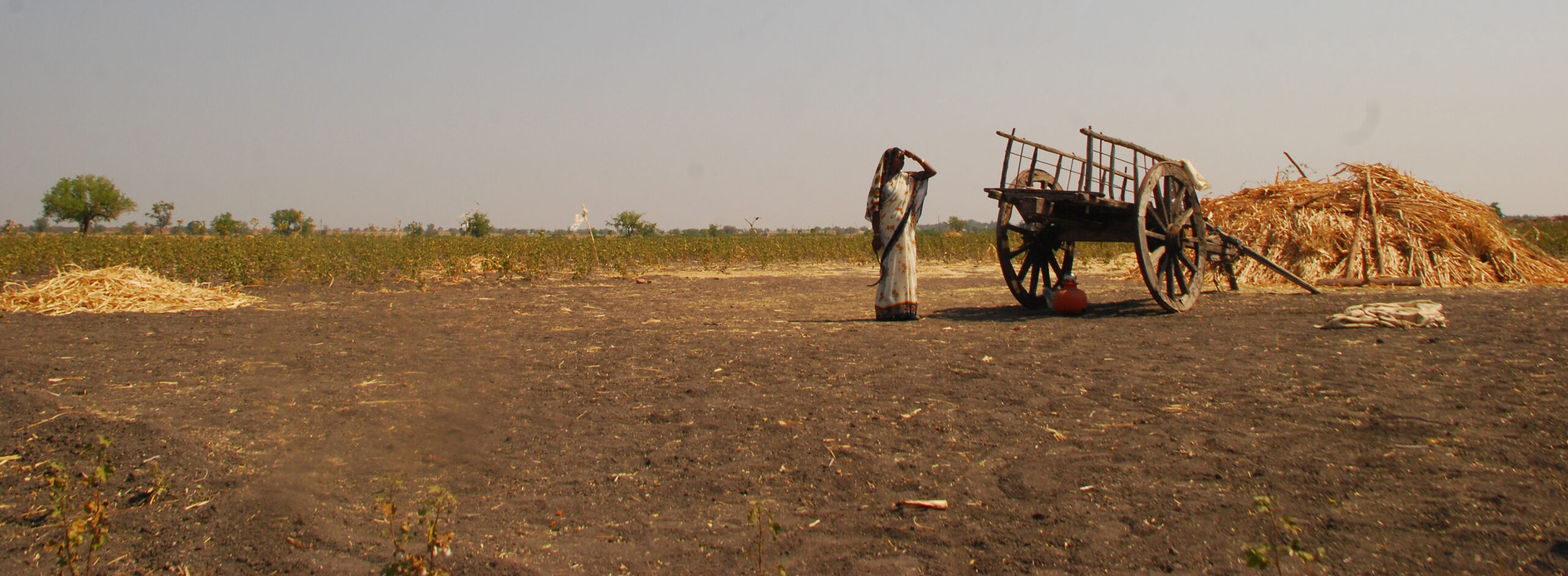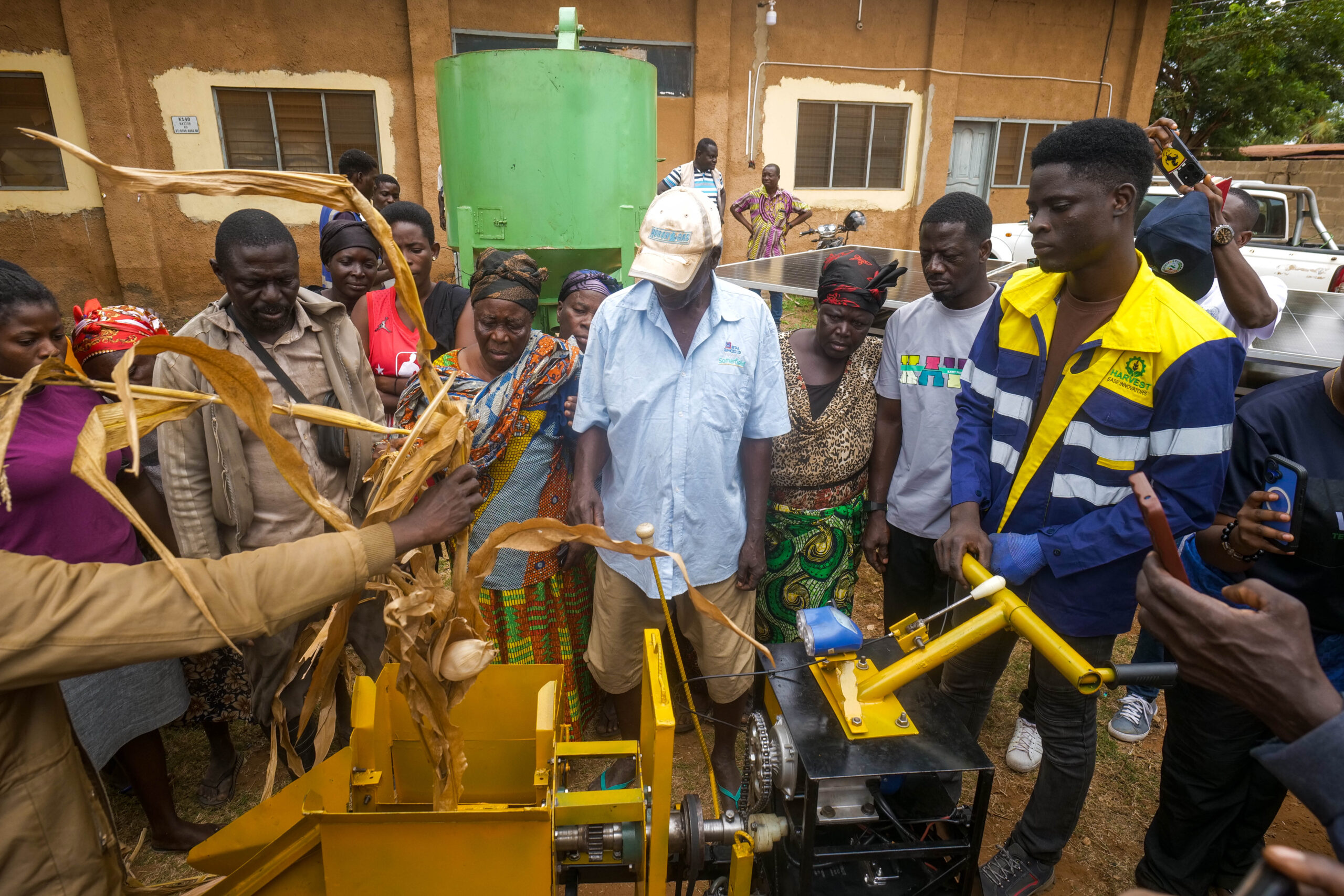'Jordan' by International Labour Organization ILO via Flickr (CC BY-NC-ND 2.0) https://flic.kr/p/2kGMJ1b Credit : Abdel Hameed Al Nasier/ILO Date : 2019/06 Country : Jordan

Improving livelihood opportunities for women and youth in clean energy in MENA countries
16 May 2024
Middle East and North Africa (MENA) countries have the lowest level of women’s labour force participation in the world, as well as some of the highest levels of youth unemployment. The Economic Research Forum (ERF), a regional network promoting high-quality economic research to develop Arab countries, is conducting research in Egypt, Jordan, Lebanon, Morocco, Sudan, and Tunisia to understand how Micro Small and Medium Enterprises (MSMEs) will adapt to the transition to clean energy and the phasing out of energy subsidies in the region. The project, which runs from 2022 to 2025, examines how the clean energy transition might generate quality livelihood opportunities for women and youth.
Initial findings
Significant progress has been made on this project in the past two years. An initial analysis of gender equality in 6 countries revealed various data gaps and emphasized the importance of both quantitative and qualitative data in understanding the challenges of adopting clean energy and its impact on women and youth. The report highlighted the lack of gender- and age-specific data on clean energy MSMEs, underscoring the need for gender-disaggregated data to explore their transition to clean energy. Data is crucial for policy prioritization. In response, the ERF is using a mixed research method that combines surveys of MSMEs with interviews and focus groups to understand key issues and challenges.
Women make up 32% of the formal clean energy workforce globally, but only 7–9% in MENA. Within the clean energy sector, women are overrepresented in human resources and administrative services but underrepresented in STEM (science, technology, engineering, math) and renewable energy operations, management, and leadership.
ERF researchers conducted a survey of 1000 MSMEs in Morocco, Egypt, and Jordan, examining the challenges and drivers of clean energy adoption. The results showed that only a small percentage of Egyptian enterprises use clean energy, while Jordan and Morocco had adoption rates of 5% and 4%, respectively. However, 21% of Egyptian enterprises and 37% of Jordanian and Moroccan firms were considering transitioning to sustainable energy.
The study revealed that factors such as firm size, age of owners and management, and education level influenced the adoption of renewable energy. Interestingly, the gender of the business owner and the percentage of female employees did not independently impact clean energy adoption. This underscores the importance of promoting gender equity beyond economic considerations and recognizing the intersectionality of gender with other factors.
However, research from the Peterson Institute for International Economics, which surveyed over 22,000 organizations worldwide, found that gender diversity can lead to improved economic success. Organizations with 30% women executives have been shown to achieve a net profit margin that is 6% higher than their industry peers. Gender balance not only benefits women but also enhances working conditions, well-being, organizational culture, and productivity for everyone involved.
ERF’s research on women’s involvement in clean energy entrepreneurship in MENA matches global trends. According to the International Energy Agency, only 11% of renewable energy start-up founders are women, compared to 20% in other industries (excluding consumer products). Like their counterparts in other sectors, women in clean energy entrepreneurship face challenges in raising investment capital and lack access to specific skills and training. A 2019 global survey by the International Renewable Energy Agency (IRENA) found that 56% of respondents from Europe, North America, Asia, and Africa identified financing as a significant obstacle for women in clean energy entrepreneurship, while 71% highlighted skills and training. In the MENA region, awareness of financial schemes is low, and banks are often reluctant to provide loans to businesses owned by women and youth.
Entrepreneurship is especially important in the MENA context, where job scarcity is identified as the major reason for starting a business. The MENA region has some of the highest levels of youth unemployment in the world, combined with the lowest rate of women’s labour force participation at 21%. Social norms, prejudices, and misperceptions (for example, that in times of high unemployment, men should be given jobs first and women should be let go first) interact to compound the challenges women face in seeking employment.
Addressing inequalities
Addressing the persistent inequalities in women’s access to capital and financing requires tackling root causes, including wage inequity and women’s marginalization in land and property ownership. There are three principal means of acquiring land and property everywhere in the world: inheritance, purchase in the market, and state distribution. Enforcing wage equity and granting women equal and independent land and property rights can reduce these inequities. However, the urgency of the climate crisis and the slow pace of wage and land reform necessitate additional measures to improve women’s capital access. This may entail providing access to finance without the standard requirements of collateral, to which women and youth have much weaker access. Private climate finance channelled as guarantees can reduce risks for women- and youth-run businesses, especially in places with limited access to finance and little credit servicing history.
Women and girls in the MENA region excel in education compared to men and boys, often demonstrating a greater inclination towards pursuing STEM and Technical and Vocational education. According to UNESCO, several countries in the MENA region have a proportion of women STEM graduates above 50%. UNESCO also reports that the percentage of female graduates in STEM fields in Morocco rose from 39% to 49% between 2010-11 and 2020-21. There are big generational differences in women’s accomplishments in technical fields in the MENA region. For example, Tunisian women between the ages of 20 and 24 possess ICT skills four times more advanced than those of older women. Despite obstacles such as discrepancies in rural areas, girls routinely surpass boys in academic achievement at every level of education. Therefore, it is crucial to shift the focus from simply recruiting women into STEM fields to ensuring that they obtain appropriate employment opportunities aligned with their degrees.
Although government, corporate, and non-profit initiatives have increased women’s employment and entrepreneurship in the MENA clean energy sector, gender gaps persist. Women face “sticky floors” and “glass ceilings” in their careers due to cultural conventions, social biases, and structural constraints such as the gendered division of labour within families and higher societal value awarded to paid work over unpaid caregiving. ERF research highlights women’s prospects and challenges in renewable energy, offering policy recommendations to level the playing field.
IRENA predicts there will be 38 million clean energy jobs by 2030 and 43 million by 2050 under a 1.5°C global trajectory. Most of these jobs will be associated with solar, wind, biomass, small-scale hydropower, green hydrogen, and geothermal energy. Clean energy skills are presently in short supply worldwide, including in MENA. The global transition to sustainable energy presents a unique and opportune moment to create decent livelihoods for women and youth in the MENA region.
blog
Theme
Clean Energy, Gender Equality
Lead Partner
Economic Research Forum (ERF)
The Economic Research Forum (ERF) is a regional network dedicated to promoting high-quality economic research for developing the Arab countries.
Read moreCredit: Formation, Recherche, et Environnement dans la Tshopo (FORETS), Democratic Republic of Congo by Axel Fassio/CIFOR via Flickr, CC BY-NC-ND 2.0 https://flic.kr/p/M4bV7G

T20 Side Event: Powering change: Women, youth, and the clean energy revolution
Thursday 12 June 2025
Watch again In this virtual panel event, we will bring together experts from various regions to address a critical challenge of our time: ensuring that women and youth are not left behind in the global transition to clean energy. Gender equity needs to be at the centre of clean energy policies or women will become […]
IMPACT OF CLIMATE CHANGE Suvarna Amrutappa Alkatti by UN Women Asia and the Pacific via Flickr. CC BY-NC-ND 2.0 https://flic.kr/p/eZjQgk

Powering an Inclusive Energy Future: Driving the G20 from Commitment to Implementation
10 October 2025
As the world accelerates toward a clean energy future, the question is no longer whether the transition will happen, but how equitable, inclusive, and sustainable it will be. Under Brazil’s 2024 presidency, the G20 endorsed a set of ‘Principles for Just and Inclusive Energy Transitions’, recognising that the shift to renewable energy must do more […]
Piloting of Youth-Designed Clean Technologies for Women Farmers in Ghana and Senegal
19 September 2025
Recently, the Innovate for Clean Powered Agro Technologies (INFoCAT) project held two events in Ghana and Senegal, to showcase and pilot clean technology solutions that have been developed by young Agritech Innovators. Each new technology was developed to address challenges faced by smallholder women farmers and agro-processors. The piloting programme was to show the creativity […]


